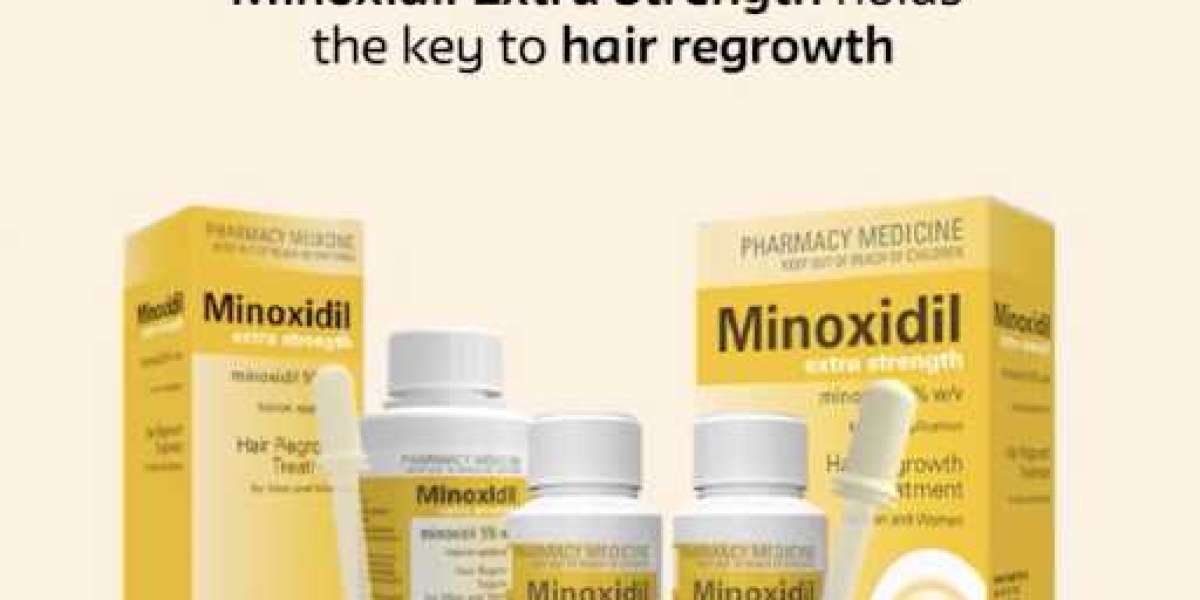Minoxidil is a widely used treatment for hair loss, effectively stimulating hair regrowth for both men and women. However, the safety of using Minoxidil raises significant concerns for women who are pregnant or planning to become pregnant.
While many women turn to this treatment to address thinning hair, it’s essential to understand the risks, safety guidelines, and alternatives to Minoxidil during pregnancy.
Pregnancy is a time of significant physical changes, and the health and well-being of the mother and the developing baby should always come first. Hair loss during pregnancy or after childbirth, commonly called postpartum hair shedding, is expected. Although Minoxidil is effective for addressing hair loss, its use during pregnancy is not advised unless under strict medical supervision.
What Is Minoxidil and How Does It Work?
Initially developed as a medication for high blood pressure, it was found that Minoxidil also stimulated hair follicles, encouraging the growth of new hair. It’s available in liquid or foam forms, with concentrations typically ranging from 2% for women to 5% for men. The treatment effectively addresses androgenic alopecia, a form of hair loss that occurs due to hormonal imbalances or genetics.
While Minoxidil’s primary effect is localized to the scalp, some women may still be concerned about the potential systemic absorption of the active ingredients, significantly during pregnancy when sensitivity to certain substances can be heightened.
Is Minoxidil Safe During Pregnancy?
Medical experts generally advise against using Minoxidil during pregnancy. Although the research on Minoxidil’s impact during pregnancy is limited, available studies indicate that its use can pose risks to the developing fetus.
Although the potential to cause congenital disabilities or harm is not conclusively established, the Australian Therapeutic Goods Administration (TGA) classifies Minoxidil as a category C drug. This classification suggests that while there is no concrete evidence of harm, the drug should only be used if the benefits outweigh the risks. Given the uncertainties and the critical nature of pregnancy, most healthcare providers recommend avoiding Minoxidil altogether during this time.
Furthermore, Minoxidil is not considered safe for use while breastfeeding. It’s unclear whether the drug can pass into breast milk, and even though the risk is likely low, it is typically recommended to avoid using it during breastfeeding unless necessary.
Potential Risks of Minoxidil During Pregnancy
Using Minoxidil during pregnancy may carry several risks. Since the drug stimulates blood flow to the hair follicles, it could lead to unwanted side effects, especially for a developing baby. The most significant concern is that Minoxidil may cause vasodilation or the widening of blood vessels, which could impact fetal circulation.
There’s also the possibility of hypotension (low blood pressure), especially if a woman is already prone to changes in blood pressure during pregnancy. These effects could result in complications such as reduced fetal growth or preterm delivery, though these outcomes are not definitively linked to Minoxidil. Given these potential risks, many doctors recommend avoiding its use during pregnancy.
Another important consideration is that hormonal changes during pregnancy can influence how the body absorbs and reacts to medications. As such, even if Minoxidil is considered safe for general use, it may have an unpredictable effect on the body during pregnancy.
What Should Women Do If They Experience Hair Loss During Pregnancy?
Hair loss during pregnancy is common and typically results from hormonal fluctuations. The condition is temporary for most women, and hair growth usually returns to normal after childbirth. In the meantime, several ways to manage hair loss without resorting to potentially harmful treatments exist.
Maintaining a healthy diet is one of the most effective ways to support hair health during pregnancy. Nutrient-rich foods, particularly those high in vitamins like biotin, iron, and zinc, can help nourish the hair and support its growth. Also, gentle hair care products that don’t irritate the scalp can prevent further damage and shedding. If the hair loss is causing distress, consulting a healthcare provider for reassurance and guidance is always a good idea.
For women experiencing more severe hair loss postpartum (after childbirth), alternative treatments may be considered once breastfeeding has ended and the body has returned to its normal hormonal balance. These treatments can include light therapy, certain vitamins and minerals, or more comprehensive approaches, such as consulting a dermatologist or hair restoration specialist for tailored recommendations.
Alternatives to Minoxidil During Pregnancy
If you’re pregnant and seeking to address hair thinning, it’s crucial to prioritize safe, natural alternatives to Minoxidil. Pregnancy-safe hair treatments often involve gentle scalp massage, healthy nutrition, and mild, nourishing hair care products. Some natural oils, such as coconut oil, castor oil, or rosemary oil, are known for their potential to support hair health without posing risks during pregnancy. However, even with natural treatments, it’s wise to consult a healthcare provider to ensure safety.
Another option for women concerned about hair loss after childbirth is waiting until after pregnancy and breastfeeding before starting Minoxidil or other treatments. Postpartum hair loss is often temporary, and many women find that their hair regrowth normalizes naturally as their hormones stabilize in the months following childbirth.
For women with concerns about hair thinning but are pregnant or breastfeeding, consulting with a healthcare provider or dermatologist can offer personalized advice based on their situation. A doctor may suggest alternative therapies that don’t pose a risk to the pregnancy or the baby, providing reassurance and tailored treatment options that prioritize safety.
While Minoxidil is a widely used and effective treatment for hair loss ( “https://generichealth.com.au/minoxidil-hair-loss/”), it is not recommended for use during pregnancy or breastfeeding. The potential risks to the developing fetus or infant, along with the limited research on its safety in these stages, make it a treatment best avoided during this time. If you experience hair loss during pregnancy, it is crucial to prioritize safe alternatives, such as healthy dietary practices, gentle hair care products, and natural remedies. Always consult with your doctor or healthcare provider before starting any new treatment, and remember that most pregnancy-related hair loss is temporary, with hair regrowth typically returning to normal after childbirth. By focusing on safe, natural options and being patient, you can manage hair thinning while ensuring your and your baby's well-being.








